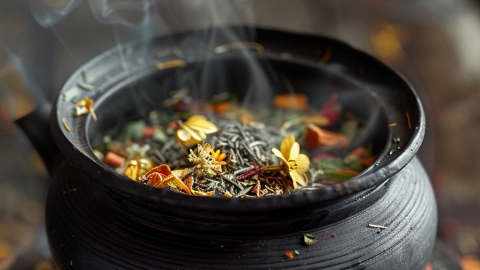Is it true that one should not eat white radish when taking traditional Chinese medicine?
There is no saying that one cannot eat white radish without drinking traditional Chinese medicine (TCM). Generally speaking, if the TCM being taken is for treating gastrointestinal discomforts such as indigestion or abdominal distension, it is acceptable to consume white radish in moderation. However, if the TCM being taken belongs to the category of invigorating and nourishing medicines, it is not recommended to eat white radish. Detailed explanations are as follows:

White radish, in TCM, has functions of promoting qi circulation, aiding digestion, and relieving bloating. It contains rich dietary fiber, which can promote intestinal motility, aid digestion, and reduce the burden on the gastrointestinal tract. Patients who are taking TCM for gastrointestinal discomfort may benefit from moderate consumption of white radish, as it can assist the medication in functioning more effectively and alleviate symptoms such as indigestion and abdominal distension.
If the TCM being consumed belongs to the category of invigorating and qi-nourishing medicines, which are typically used to regulate the body, enhance physical condition, and improve immunity, white radish should be avoided. This is because white radish has a "qi-breaking" effect that may weaken the efficacy of tonic medicines or even produce counteractive effects. Therefore, during the period of taking invigorating and qi-nourishing TCM, one should avoid eating white radish to prevent interference with the normal function of the medication.
During TCM treatment, it is also important to maintain good lifestyle habits and avoid consuming excessively greasy, spicy, or cold foods, as these may affect the efficacy of the medicine or worsen the condition.






